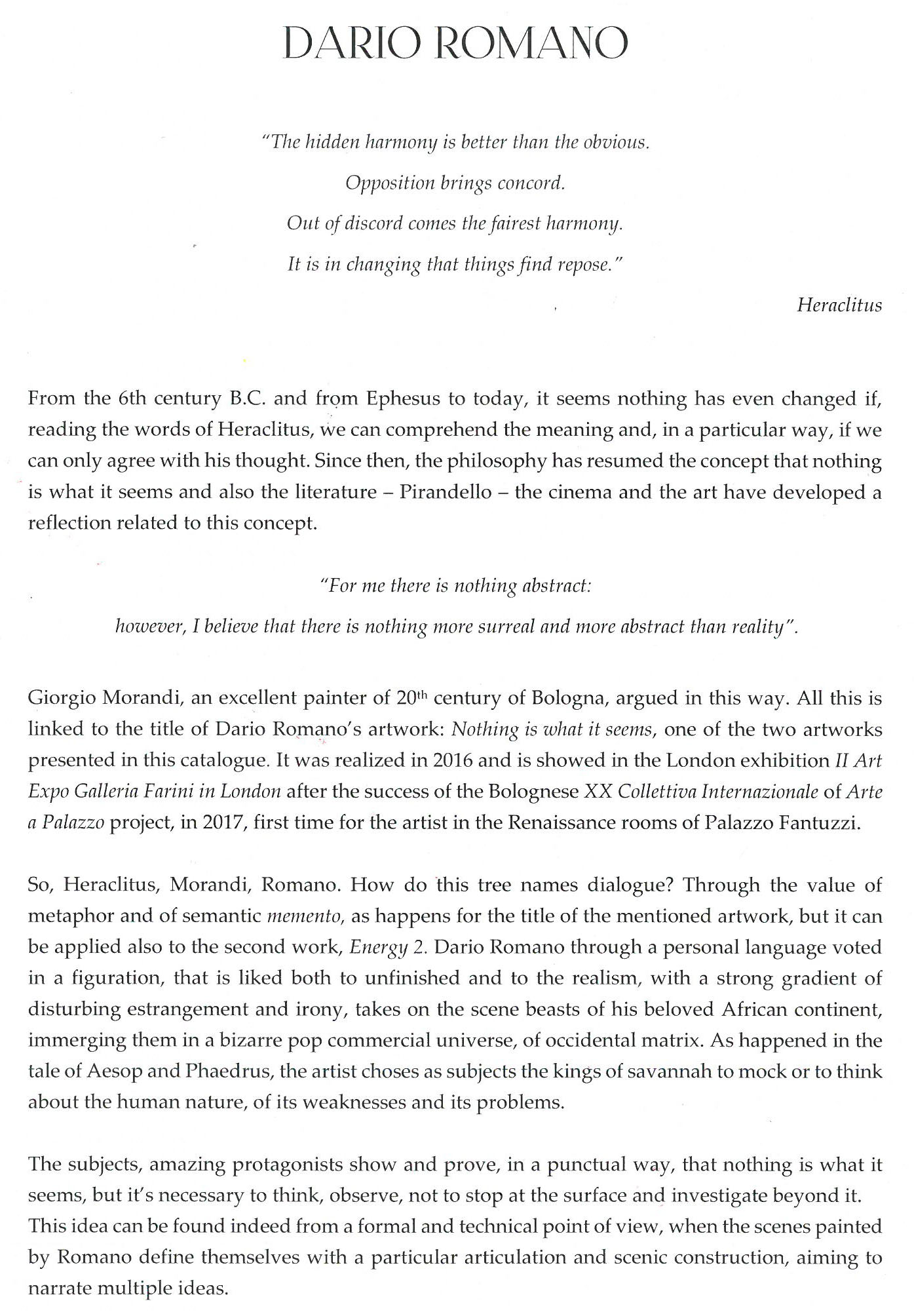“The hidden harmony is better than the obvious.
Opposition brings concord.
Out of discord comes the fatrest harmony.
It is in changing that things find repose.”
Heraclitus
From the 6th century B.C. and from Ephesus to today, it seems nothing has even changed if, reading the words of Heraclitus, we can comprehend the meaning and, in a particular way, if we can only agree with his thought. Since then, the philosophy has resumed the concept that nothing is what it seems and also the literature — Pirandello — the cinema and the art have developed a reflection related to this concept.
“For me there is nothing abstract: however, I believe that there is nothing more surreal and more abstract than reality”.
Giorgio Morandi, an excellent painter of 20!” century of Bologna, argued in this way. All this is linked to the title of Dario Romano’s artwork: Nothing is what it seems, one of the two artworks presented in this catalogue. It was realized in 2016 and is showed in the London exhibition II Art Expo Galleria Farini in London after the success of the Bolognese XX Collettiva Internazionale of Arte a Palazzo project, in 2017, first time for the artist in the Renaissance rooms of Palazzo Fantuzzi.
So, Heraclitus, Morandi, Romano. How do this three names dialogue? Through the value of metaphor and of semantic memento, as happens for the title of the mentioned artwork, but it can be applied also to the second work, Energy 2. Dario Romano through a personal language voted in a figuration, that is liked both to unfinished and to the realism, with a strong gradient of disturbing estrangement and irony, takes on the scene beasts of his beloved African continent, immerging them in a bizarre pop commercial universe, of occidental matrix. As happened in the tale of Aesop and Phaedrus, the artist choses as subjects the kings of savannah to mock or to think about the human nature, of its weaknesses and its problems.
The subjects, amazing protagonists show and prove, in a punctual way, that nothing is what it seems, but it’s necessary to think, observe, not to stop at the surface and investigate beyond it.
This idea can be found indeed from a formal and technical point of view, when the scenes painted by Romano define themselves with a particular articulation and scenic construction, aiming to narrate multiple ideas.

